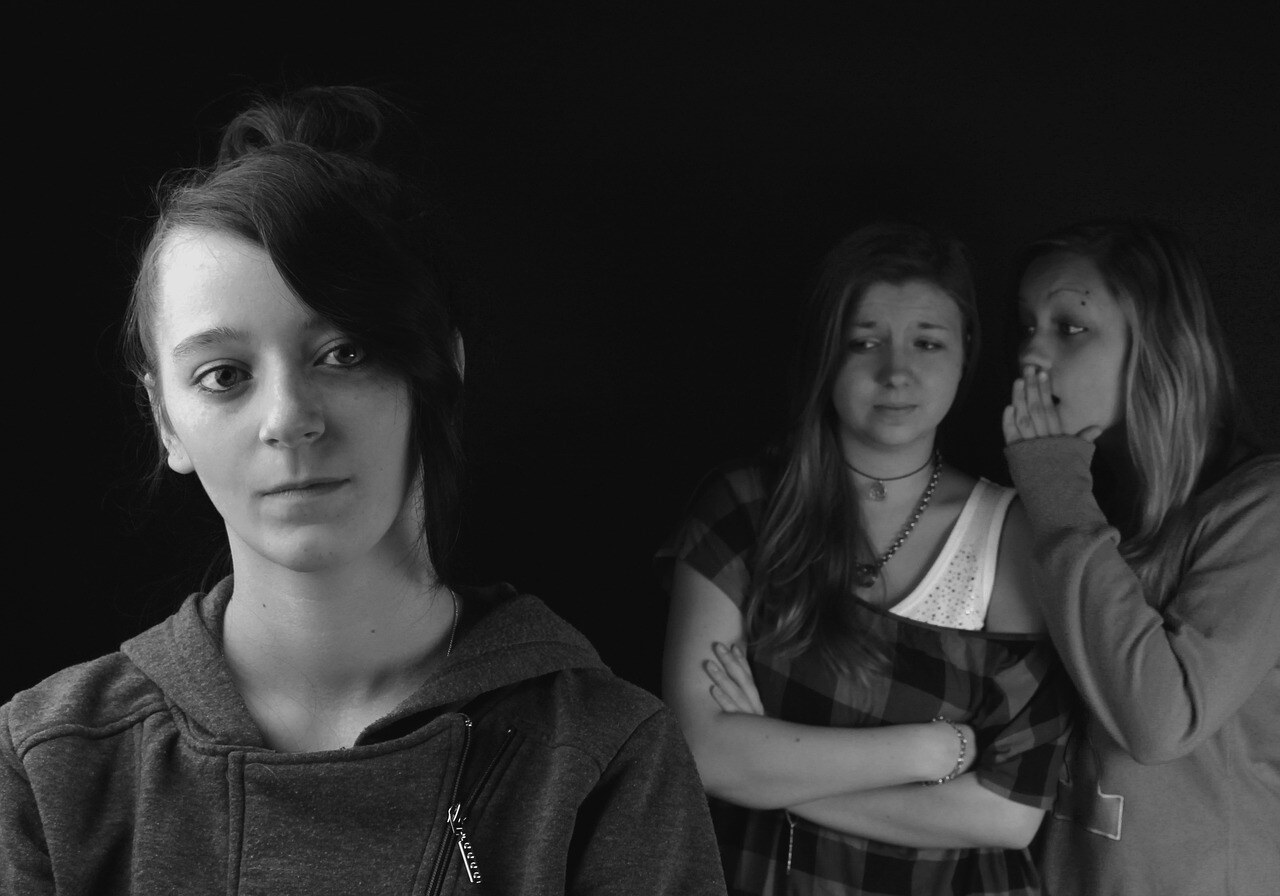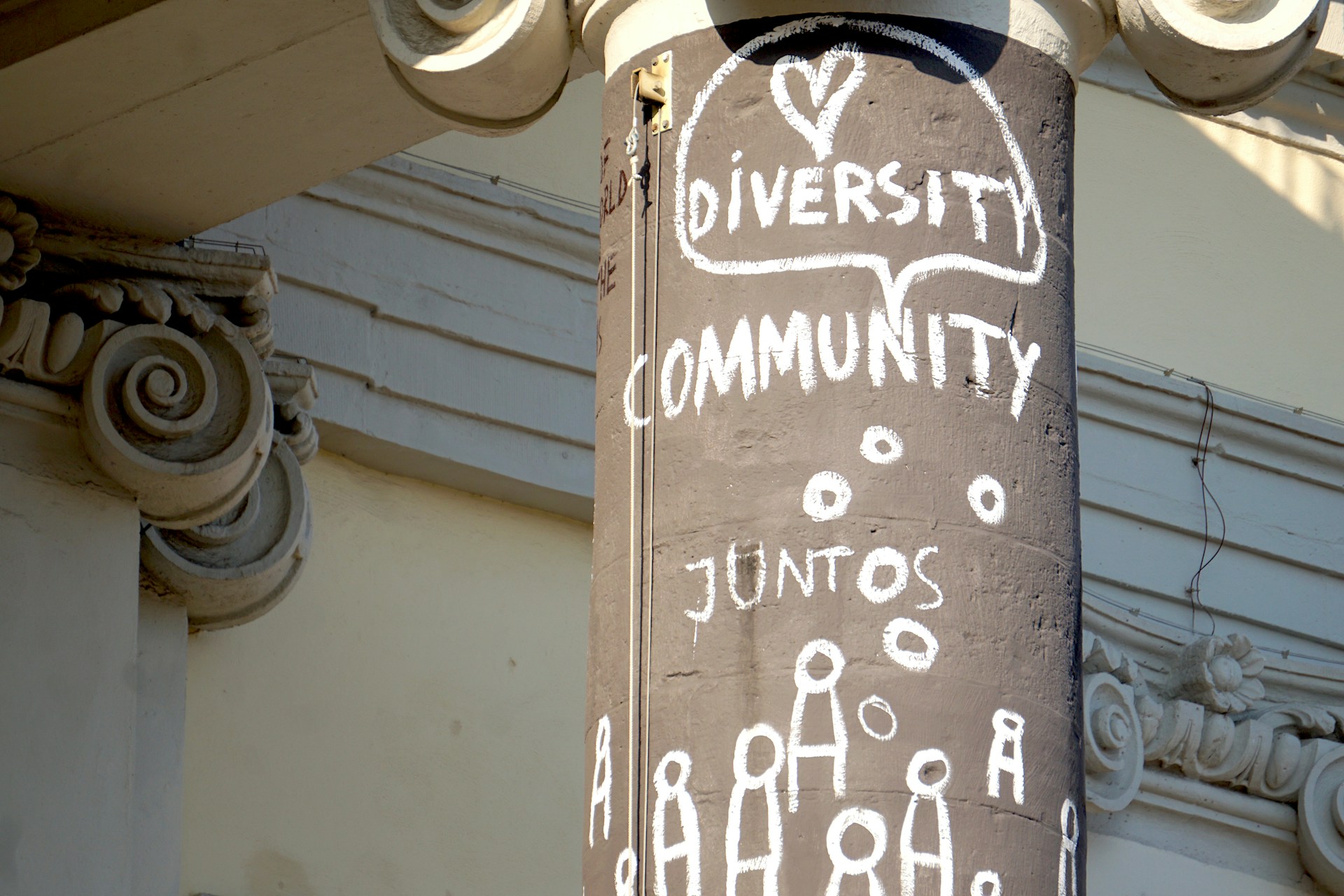Why Parents' Mental Health Matters
“Excuse me, but do you think that when you were born, I was given a manual on how to be a parent?”
This is what I asked my 13 year-old after an hour of “emotional” back-and-forth about yet another inane aspect of the age-old familial struggle for control…over what, I’m not sure - there have been so many - but it pulls you in, parent and child, alike, and then you’re caught in the storm, wondering how you got there, probably thinking about how, if you’d behaved that way toward your parents, what would have happened. I sure do and I make sure that my kid knows all about it - I’m almost immune to the eye rolling. Almost.
When Mental Health Meets Parenting
Parenting is hard, and anyone who tells you that it isn’t is either lying like a rug or has a fulsome domestic staff, but parenting while living with un/diagnosed mental health concerns can be much harder. Now add a child with their own mental health challenges into the scenario and it can be a recipe for disaster. However, with the proper mindset (usually achieved through therapeutic intervention, whether it’s reading a slew of self-help books, seeing a licensed therapist or writing out your thoughts for reflection), the impending force majeure can turn into a magnificently fortuitous event that helps your family today and your family’s future generations, and it begins with you. 🤯
My Journey: Living and Parenting with Mental Illness
I live with ADHD and various mental illnesses, including Depression, Anxiety, PTSD, Borderline Personality Disorder (BPD) and a few other letters of the alphabet that clarify my thoughts and behaviours (not who I am), which was diagnosed when I turned 40 years old. Since then, I have embraced the diagnoses and have used them as resources and references to go back over my life and understand why things went the way that they did, from my passion for school to my “interesting” dating and social life. That decade of reflection has not been easy, but filled with tears, anger, hatred, breakdowns, breakups, substance use and self-harm, yet I have been able to go toward the other side with knowledge that has led to understanding, peace and compassion. It’s allowed me to be a better person and a better parent.
And it’s not over - every day I continue to be tested (please see the first paragraph of this post).
Why We Don't Talk About Parental Mental Health
Mental health is still stigmatized, and during the decades that I’ve been on this earth, it was barely even discussed except when it came to serial killers, unique neighbours or those family members that you actually didn’t talk about. And parents were, of course, immune from the idea that there could be mental health concerns associated with their own behaviour; addictions and substance use, corporal punishment, deprivation, insults and criticisms, abandonment and apathy, incest and sexual abuse - it was all part of that tough job of parenting where they were “just doing their best.”
We understand that the access to information (including mis/disinformation) that we have today was incredibly and significantly less prior to the new millennium, and people relied upon doctors, politicians, the news, the library, encyclopedia and on anecdotes and advice from family and friends to address concerns - if they did at all. It was easier to bury the problem than be ridiculed for being “crazy” or a bad parent for trying to find out more and to even address it.
Today, we are, unfortunately, still subject to that idea that we will be judged if we don’t “keep up” with the perception of a good parent, where we give our kids everything they ask for, if we smoke a daily joint or two, even if we discipline our children with methods other than positive reinforcement (because when our kid does something that pushes, nay, smashes our buttons, I don’t know many people who are in the state of mind to have a calm and rational discussion), that we’ll be judged by our peer-parents, our own parents, family, friends and - the worst - society as a whole. And so we give in to our kids, we mask our own anxieties (sometimes completely and sometimes just behind closed doors - I know full well that my neighbours hear my rants, and I’m ok with that), we turn to exterior things that provide an escape, like shopping or gambling, substances or sex to avoid dealing with the questions we have about ourselves, which leads to further health concerns, both mental and physical, because the questions are suppressed, but one day, it’ll all come up like lava from a volcano, even if you believe you have it all under control.
It is from that place that we reject the idea that we may need help and often lash out at others with judgement, ridicule or insult due to our own, what we would perceive as, shortcomings or mistakes, because we don’t have compassion for ourselves and the challenges we face or to understand that there is no such thing as a perfect parent. We just need to push through these tough times, hold it together and everything will be ok.

**NB - the use of words like “compassion” and “therapy” may make this post sound saccharine and you might want to quit reading, but that’s not its intention.
Those words are being used because, to me, they best describe what is needed and what has worked. Compassion is a caring response with the effort to alleviate someone’s distress, and so why can’t that someone be yourself?
Many mental health and neurological concerns are a result of inherited behaviour, meaning that they gets passed on through DNA - perhaps skipping a generation or two, but the predisposition to them is carried through and is not a result of anything that someone did or could have done to cause or prevent it - that’s the medical side of it and something you can’t help (but you can help how you deal with it).
Then there are the learned behaviours which are the result of what you observe during your lifetime, beginning in utero (a fetus develops their hearing around 24 weeks). This includes things like poor emotional regulation where a parent/caregiver’s anger or frustration is observed and learned where the child may develop the same or similar characteristics when placed into an upsetting situation because it’s really all they know, or anxiety and distrust from growing up in a chaotic or unpredictable home environment where there is no real safe space, causing stressful responses and a general distrust for most encounters that often takes years to address and manage.
Imagine learned behaviour like an accent - the environment in which you learn to speak has an extremely significant influence on your pronunciation because it’s what you’re exposed to on a consistent basis.
As much as parents want to model positive behaviours for their children, when living with mental health challenges, both diagnosed and undiagnosed, the management and regulation, as well as the transformation of the behaviours is incredibly difficult and often aren’t as ideal as we would like them to be.
Recognizing What We Pass On
Reflecting on our own childhoods and learned experiences, even as adults, we may be able to identify instances and behaviours that have not served us well as people and as parents.
“I’m becoming my mother!” is a very common lament, or “My father would give me a good, hard slap and that set me straight, so that’s why I have to do it to my kids.”
It was when I reflected on my own childhood - after having a child - that I recognized the negativity of the learned behaviours, highly influenced (as I discovered much later) were the result of my parents’ own undiagnosed (inherited) mental health concerns and how those affected their learned behaviour; it just kept getting passed on, from generation to generation, and so I made the decision to stop it.
I invite you to take a moment, either now or in the near future, when you can find a calm space - both, physically and mentally, and consider the learned behaviours in your life. Negative and positive, of course, and note if/how you see them reflected in your child’s behaviour.
I believe that most parents want the best for their kids and, no matter your intentions, it’s your actions that are able to provide the best, and, unless you’re healthy, the way you carry out those actions is very heavily influenced.
Put Your Oxygen Mask On First
I often use the example of the oxygen mask while flying: before you’re up in the air, the safety presentation always commands you to put the oxygen mask onto yourself first, before you put it onto your dependents. Of course, most parents/caregivers want to protect their child before themselves - it’s usually instinctual - however, what good will you be to that child if the oxygen levels drop and you’re maskless, unconscious on the seat beside them and facing hypoxia (and possibly death). Imagine the psychological impact on your child of having to watch you fall unconscious and possibly die.
The same rings true with seeking help for your own mental health concerns where, it’s not about your child watching you fall unconscious, but them watching you descend into a severe state of unwellness that can impact so many aspects of, both, your and their life.
Once you’ve got that oxygen mask on yourself, as an adult, you’re now capable of ensuring that it’s placed onto your child(ren), and that you can navigate next steps for them and hold their hand to quell their fears. The plane may be falling, but because of your care, they’ll feel safe.
So much emphasis has been put onto the mental health support of children, and rightly so, however, medical professionals continue to overlook the importance of wholistic mental healthcare that treats the entire family, especially the parents/caregivers. If the caregivers are en route to a place of self-awareness and good health, they will be able to smooth the path for the child to follow, creating an easier road with fewer obstacles and less stress, and places to rest and enjoy what’s around them.
The Bigger Picture: Why This Matters for Everyone

Attention to parental mental health is vital to our society in order to reduce the instances of death by suicide, substance use and addiction, mental illnesses including personality disorders, criminal and risky behaviour, sexual, emotional and physical abuse, poverty, homelessness and so many more aspects of our humanity that, with some compassion (there it is again) and some effort in the name of the health of your children, your grandchildren, your great-grandchildren, your family and yourself, can be helped to heal and hopefully be eradicated.
It starts with you.
If you're ready to prioritize your mental health, resources are available. The National Alliance on Mental Illness (NAMI) offers guidance for parents navigating mental health challenges. For those in Mexico, Voz Pro Salud Mental provides Spanish and English mental health resources and support. Psychology Today's therapist directory can help you find English-speaking therapists locally. Remember, seeking help isn't weakness—it's putting your oxygen mask on first.

 By
By


